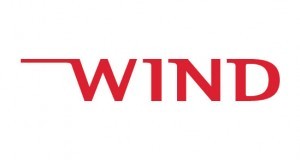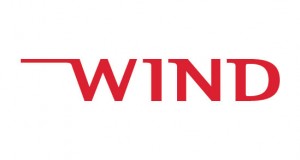NEWS HIGHLIGHTS
-
Titanium Server CPE platform helps service providers maximize CAPEX and OPEX savings via a new nimble two-server configuration with full carrier grade reliability.
-
Enhancements to the Titanium Server portfolio accelerate the performance of virtual network functions while improving scalability and simplifying commissioning.
-
Wind River will showcase Titanium Server and Titanium Server CPE-based solutions from customers and partners at Mobile World Congress 2016.
Wind River®, a world leader in delivering software for the Internet of Things (IoT), has introduced a new platform,  Wind River Titanium Server™ CPE, that can speed the deployment of early Network Functions Virtualization (NFV) use cases such as virtualized customer premises equipment (vCPE). In addition, enhancements to the Titanium Server portfolio (Titanium Server and Titanium Server CPE) accelerate performance, improve scalability, and simplify commissioning. The Titanium Server portfolio comprises commercial NFV infrastructure software solutions that deliver the carrier grade reliability required for telecom networks.
Wind River Titanium Server™ CPE, that can speed the deployment of early Network Functions Virtualization (NFV) use cases such as virtualized customer premises equipment (vCPE). In addition, enhancements to the Titanium Server portfolio (Titanium Server and Titanium Server CPE) accelerate performance, improve scalability, and simplify commissioning. The Titanium Server portfolio comprises commercial NFV infrastructure software solutions that deliver the carrier grade reliability required for telecom networks.
CPE applications have emerged as an early use case delivering significant savings in operational costs. The virtualization of CPE functions, traditionally implemented as discrete physical appliances, reduces operating expenses (OPEX) through more efficient utilization of compute resources, increased service deployment agility, and the elimination of “truck rolls” required to update and maintain equipment at remote locations. These OPEX savings may be achieved whether the virtualized CPE functions are hosted in a server at the customer premises, in a service provider point-of-presence (PoP), or in a central data center. Given the undeniable benefits of a more virtualized and intelligent network, service providers will continue to push toward network transformation with the growth of NFV use cases like vCPE and other software-defined and cloud technologies.
By leveraging the Titanium Server CPE platform, service providers can deploy cost-sensitive NFV applications such as a virtual business CPE (vBCPE) on only two servers. Each server runs the full set of carrier grade compute, control, and storage functions, while working to deliver best-in-class virtual network function (VNF) performance to maximize the number of users supported per server and thereby also maximize OPEX savings. At the same time, Titanium Server CPE helps service providers to maintain full carrier grade uptime for their vBCPE services, which enables them to minimize any revenue impact resulting from Service Level Agreement (SLA) penalties triggered by service downtime.
“Use cases such as virtual CPE are emerging as early applications of NFV that can deliver significant operational cost savings as well as improved deployment agility,” said Paul Senyshyn, vice president of commercial operations for networking solutions, Wind River. “As service providers evaluate the NFV benefits and opportunities possible today, Wind River is delivering solutions that can help the industry introduce new services, minimize costs, and maintain carrier grade reliability for business-critical services.”
The latest release of the Titanium Server portfolio provides additional new features including:
-
Dynamic CPU scaling
-
Increased system scalability
-
Support for latest high-performance network interface cards (NICs)
-
Virtual switch packet trace tool
-
Support for “QinQ” tunneling
-
IPv6 support for all interfaces
-
Bulk provisioning and automated deployment capabilities
-
Support for VNF access to hardware acceleration devices, including the Intel® Communications Chipset 8925 to 8955 Series






